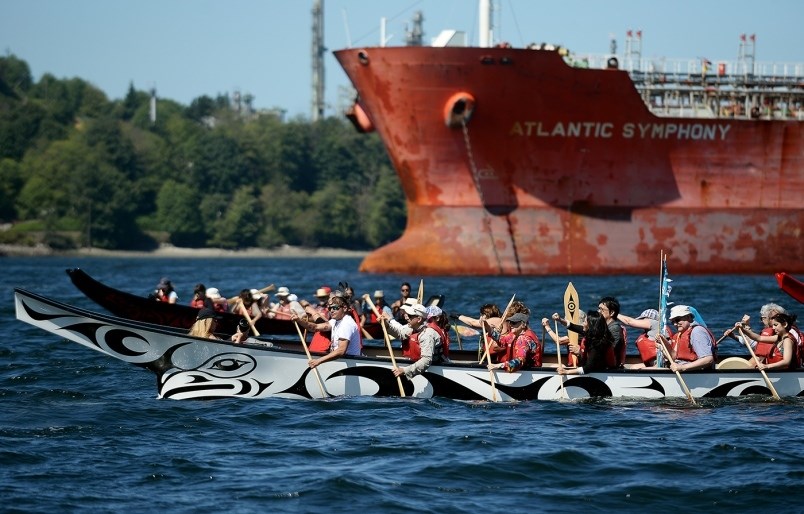The fate of the Trans Mountain pipeline expansion project is headed back to the courts.
On Wednesday, the Federal Court of Appeal agreed to hear arguments from the Tsleil-Waututh and Squamish Nations, who say their concerns about the project have still not be adequately addressed by the government.
The latest case follows a similar trajectory as the one that saw the pipeline’s approval quashed by the Federal Court of Appeal in August 2018, over the Crown’s failure to adequately consult First Nations.
In that case, led by the Tsleil-Waututh Nation, the government was ordered to go back and redo parts of its consultation process. The NationalEnergy Board later produced 678-page report addressing some of the issues raised by the First Nations, including marine shipping and related issues and suggested measures for mitigating effects.
In June, the Trudeau government gave approval for the project for the second time.
Following the decision, 10 other First Nations and environmental groups asked the courts for a judicial review of the second approval. But because of court doctrine that forbids taking the same issues to trial a second time, only the appeals from six First Nations who argued the second round of First Nations consultations were inadequate will be heard.
“Whether the further consultation process was adequate is unclear. … Given the fundamental nature of the interests of Indigenous peoples and First Nations, the applicants say the Governor in Council’s decision that the further consultation was adequate should be strictly reviewed,” appeals court judge David Stratas wrote in his decision, released Wednesday.
The actions the government did take only amounted to “window-dressing, box-ticking and nice-sounding words, not the hard work of taking on board their concerns, exploring possible solutions, and collaborating to get to a better place,” the First Nations continue to allege, wrote Stratas.
“In their evidence, consisting of many thousands of detailed pages, the Indigenous and First Nations applicants point with considerable particularity and detail to issues they say were important to them. They say the Government of Canada ignored these issues in the original process of consultation and ignored them again in the further consultation process. They add that little or nothing was done in the process of further consultation from the time (the Aug. 2018 decision) was released until the National Energy Board delivered its report—a period slightly less than six months.”
Federal government lawyers did not make submissions as to whether the second appeal should be heard.
In any case, Stratas said the matter must be decided quickly.
“Parliament’s purpose is plain: a project is not to be hamstrung by multiple, unnecessary, long forays through the judicial system. Any recourse to the judicial system must be necessary and as short as possible,” Stratus wrote, likening his decision to a “thorough customs inspection at the border.”
In a statement, Tsleil-Waututh Chief Leah George-Wilson welcomed the decision and said it was an important step in defending her people’s rights.
“We are confident that the court will once again decide in our favour. Tsleil-Waututh Nation participated in consultation in good faith again, but it was clear that Canada had already made up their mind as the owners of the project. Canada continued to do the legal minimum and in our view, fell well below the mark again,” she said. “This feels like déja vu. We have no choice but to appeal again and we expect the same results.”
Squamish Nation spokesman Khelsilem said his nation too was looking forward to the appeal.
“In the coming weeks, the court will hear a detailed account of the ways in which the Trudeau government’s Phase III consultation process with the Squamish Nation was flawed, and the ways in which they failed to meaningfully engage with the rights holders to this territory,” he said in a statement.
In August, Trans Mountain ordered an “immediate return to work” at Burnaby Mountain.



